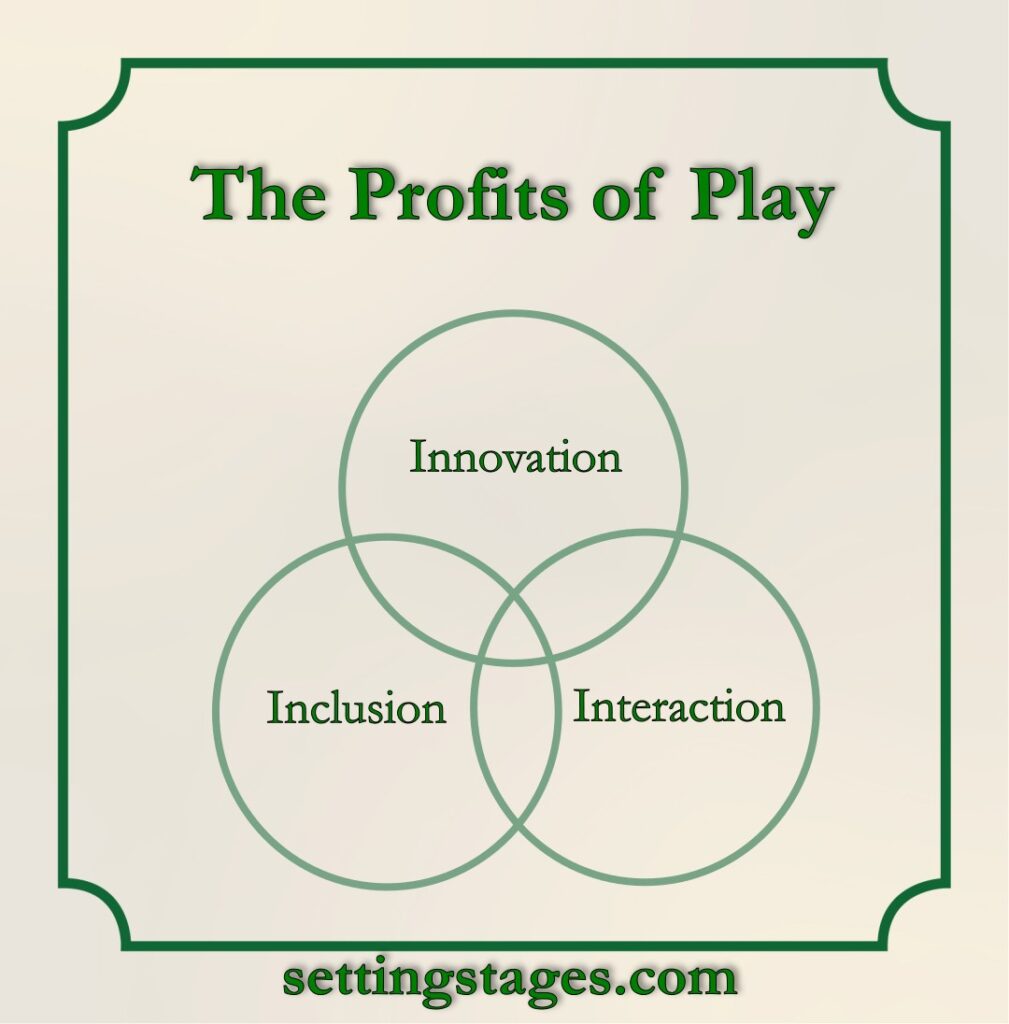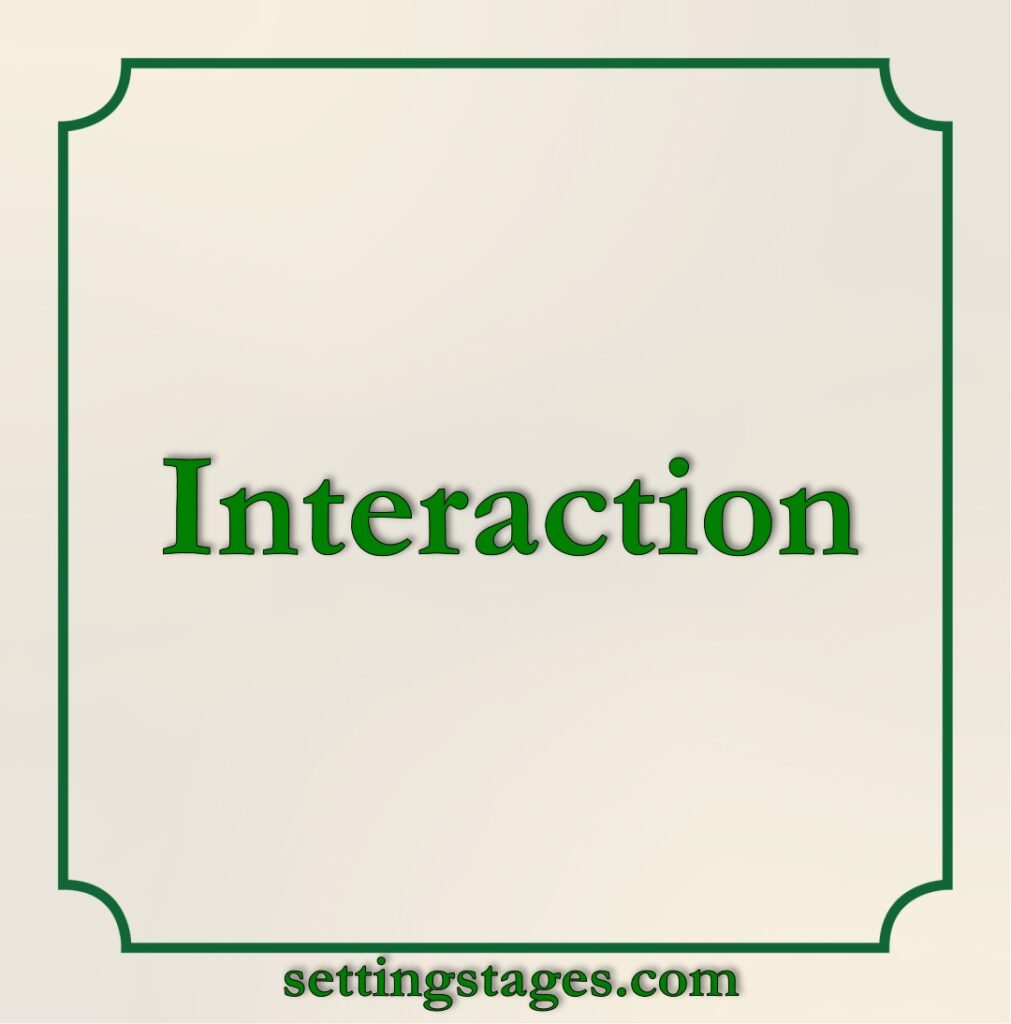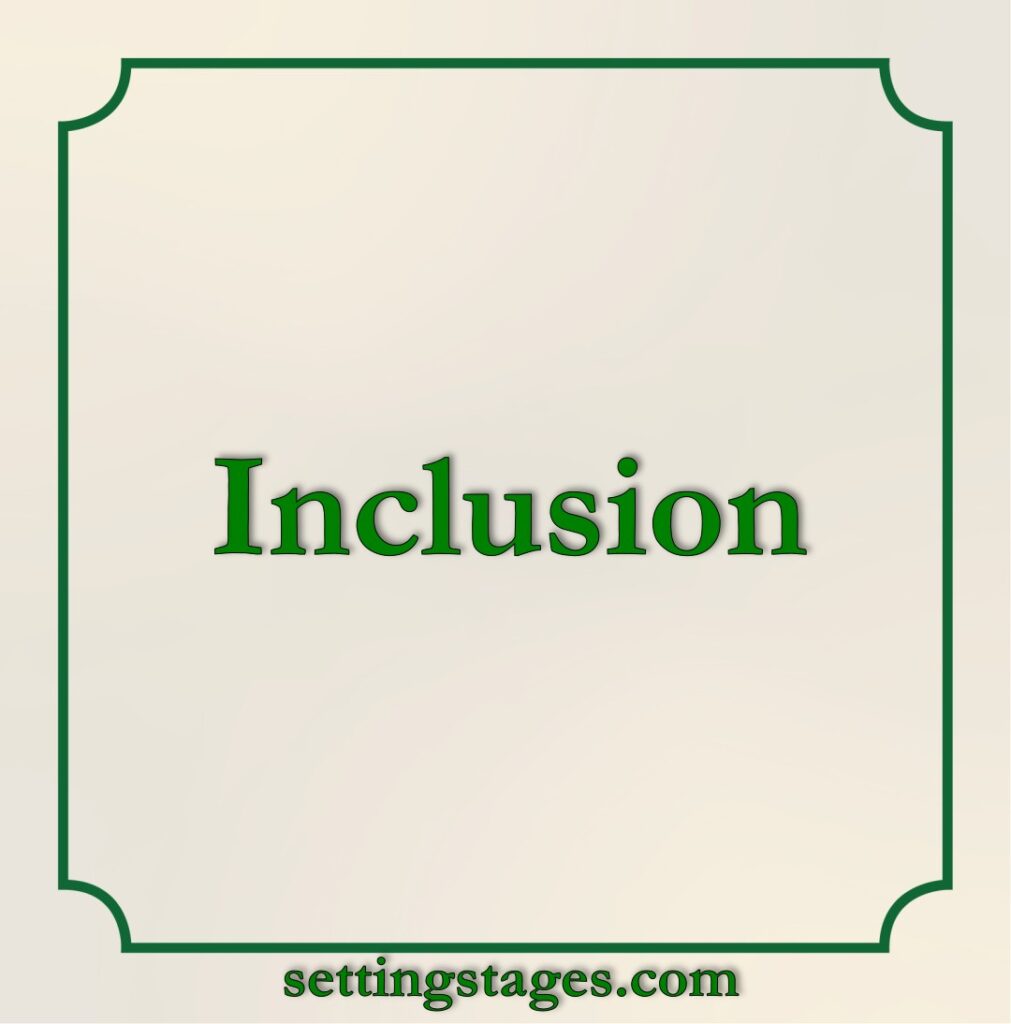Games have an unique way of improving Psychological Safety. Because of the way games work and the global way humans play, they create the perfect opportunity to collaborate and build a strong team. Serious Games even build on that by adding educational purposes, but even without an informational part, games can contribute greatly to your performance. Here’s how.

As you can see in the Venn Diagram above, playing empowers people in three different ways. These three Profits of Play directly improve Psychological Safety. As we’ve learned before, Psychological Safety is the stage you can set on which people are empowered to take the Interpersonal Risks necessary to deliver maximum value. There three Profits of Play can be seen as the powerful pillars on which you can build a profitable stage.

Let’s start with Innovation. Games help people settle in a new setting. The small discourse in which the game is played is different from the real world, which also provides a space that may be free from prejudice. As we enter the playing field, we leave our biases behind. This open way of exploring any game, helps us being more creative in our way of thinking. Things that might have seen impossible outside the game, can be explored here. Therefor, games enable teams to be embrace innovation. A skill that is useful outside of the playground as well.

Let’s continue with the Interaction. Where regular meetings are often filled with popcorn style dynamics, games are structured by a orderly sequence of interaction. Everybody gets a turn and every turn consists of similar choices. Nobody is left out, unless it is an essential (and fun) part of a game. Playing games can therefor help teams to improve their collaborations by providing structures and orders that they otherwise would overlook.

Last, but certainly not least, gameplay is very inclusive. The rules already make sure that everyone has a turn, but there is more to it than that. Games actively invite their players to play their part. They provide choices to be made and conditions to be met. You can often not win, unless you actively participate. This empowers the role each individual can play, whether it is an coöperative game or a competition. If you want to work on inclusion, inviting your teams to play a game might be a great and fun way to start!
So next time you discover a team dysfunction, you might want to take the opportunity to create a fun environment to teach the team how to work together! If you want to learn more, be sure you look into Playing it Psychologically Safe.
